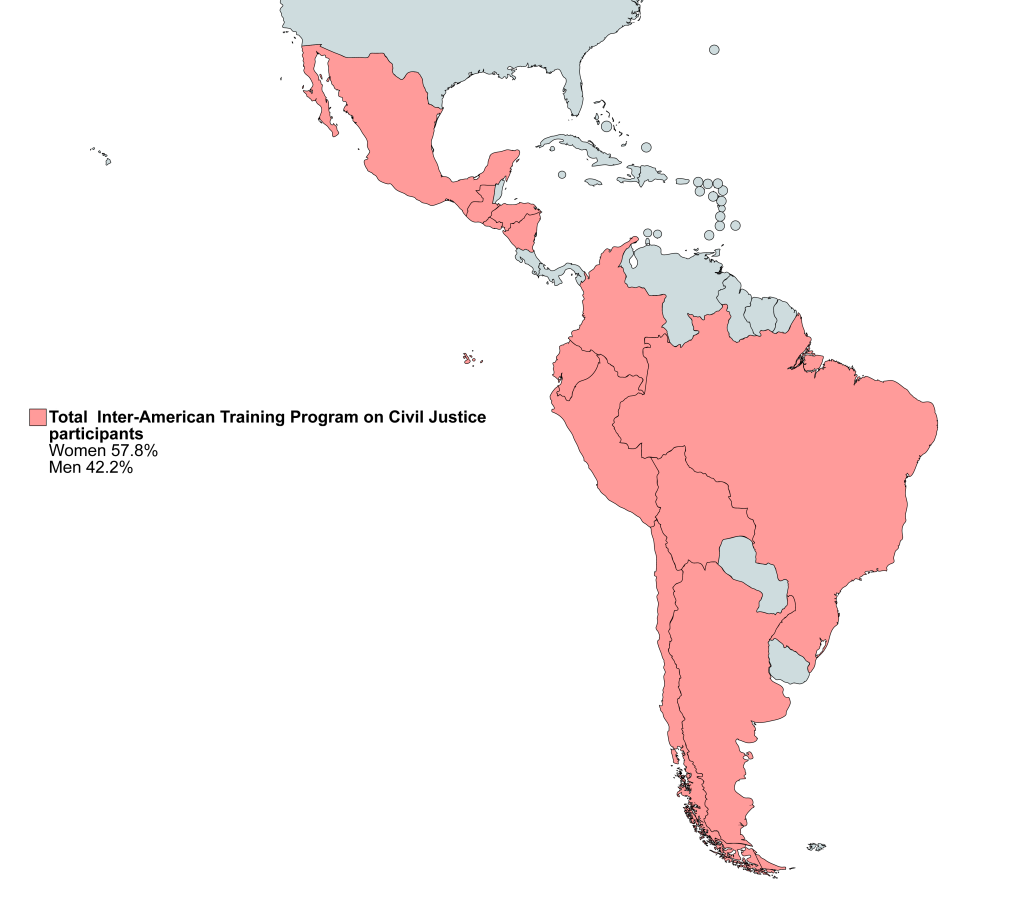Inter-American Training Program on Civil Justice Reform in Latin America (PIC)
Since Uruguay’s General Procedure Code was passed in 1989 and thanks to the influence of the Model Civil Procedure Code for Ibero-America, several countries have joined the discussion and made changes to their civil justice systems.
As a result, several topics came up around how new reformed civil procedures systems should be designed, what their characteristics should be and how to adjust the objectives of judicial institutions to meet citizen demands.
This became a key element of the regional project “Improving Access to Civil Justice in Latin America” financed by Global Affairs Canada (GAC) beginning in 2016.
The general objective of the PIC has been to convey knowledge on the fundamental pillars of civil justice reforms in the countries of the region and to develop the basic skills required to work in this new context.
The first version of the PIC lasted for four months and involved 75 in-person and 36 virtual classroom hours. It was divided into two in-person phases and a virtual phase. The goal of the first phase was to provide public policy instruments related to the way in which civil justice reforms are implemented. JSCA provided theoretical tools to allow participants to understand the need for civil justice reforms and the key role that they can perform in their respective countries. Twenty-five judges, officials and law professors participated in the program.
The intermediate phase, which consisted of seven modules, focused on expanding the contents addressed during the first phase. Each of the modules has animated content, discussion and reflection fora, and assessments that allow participants to show what they have learned.
The third phase is focused on developing skills and abilities through learning by doing, mainly through mock exercises.
Thanks to the support of the Canadian cooperation project, we have trained over 180 attorneys, judges and academics from the region, most of them (56%) women, through the Inter-American Training Program for Civil Justice Reform.
This program also has led to activities designed to replicate the knowledge that the participants acquired in their local contexts. Over the life of this project, we have held over 150 replicas which were attended by over 70,000 people from every country in the region. This has allowed the information covered in the Inter-American Training Program to be presented to and discussed by an exponentially larger number of people.
Furthermore, we have developed 30 specialized training activities that were attended by over 800 people from every country in the region.

